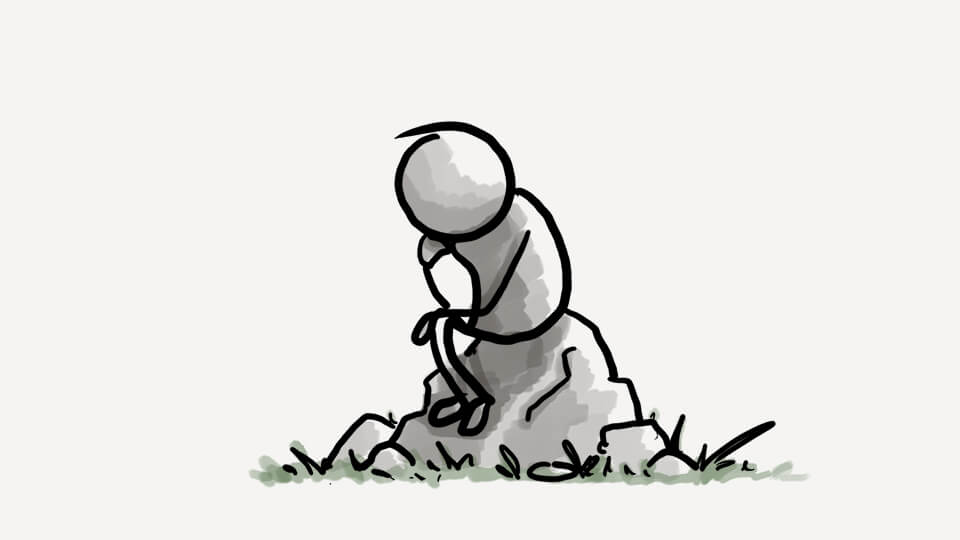I first read Meditations by Marcus Aurelius some three years ago, shortly after my wife had been diagnosed with stage IV cancer. The famous Roman emperor has been one of the few true philosopher-kings, an outspoken Stoic, and had to deal with the loss of his beloved wife, Faustina. He wrote about it all in his private, self-reflective diaries that later became known as Meditations. His book, more than any other, has helped me find my way back to emotional stability.
The longest-lived and those who will die soonest lose the same thing. The present is all they can give up, since that is all you have, and what you do not have, you cannot lose.
The popularity of Meditations has surged during the pandemic, as millions around the globe have to confront human mortality, hardship, and a sense of losing control over their lives. All powerful emotions. I found myself reaching for the book again, too, albeit not because of the pandemic.
Stoicism separates the events in our lives from our reactions to them. It teaches calm detachment and responsibility for one’s feelings, it helps to see clearly past the blurred lines of control and influence, and shows the value of living in the present.
Each of us lives only now, this brief instant. The rest has been lived already, or is impossible to see. The span we live is small—small as the corner of the earth in which we live it. Small as even the greatest renown, passed from mouth to mouth by short-lived stick figures, ignorant alike of themselves and those long dead.
Meditations is the book that taught me to write—and talk—openly about difficult matters, because I understood that worrying about what other people think, will think, or might think (that favorite of all grandmothers) only keeps me from discussing anything useful.
But, as I revisited the book, I remembered that it comes with a caveat.
Things outside our control have no ability to harm us. Acts of wrongdoing by human agent harm the agent, not the victim. Acts of nature such as fire, illness, or death can harm us only if we choose to see them as harmful. When we do so, we question the benevolence and providence of the logos, and thereby degrade our own logos.
The name of the caveat is logos. Sometimes defined as the main reason that animates the universe, other times as a divine force, not so different from the definition of the Christian God. And that doesn’t sit right with me. See, I’m not a religious man. I’ve been raised in a catholic family, in the middle of a catholic country, but my poking and prodding the foundations of faith—the way I poke and prod Stoicism now—has only gotten me into trouble, so, at some point, I gave up and became unconvinced and then an atheist. Not a devout one, just your regular non-crusading non-believer.
The position of logos as the central argument to Stoicism bothers me. Because A) I find the rest of the arguments highly useful and convincing, and B) it imbues the universe with some benevolent purpose, a myth since dispelled by science.
Yes, I know, modern science hasn’t explained everything yet, but it has explained a great deal, and the image that emerges doesn’t have a giant God-shaped hole in it. The holes that remain tend to be the size of a pinhead. And, if we were to call the forces of nature anything, we’d call them indifferent and purposeless. That’s why, to me, logos reeks of a mental shortcut in a system of values that, otherwise, answers many of our current day problems.
And perhaps the fact it does is enough, and I shouldn’t be bothered by the spiritual element. Stoic principles give you instructions on how to endure hardship with dignity, own up to your actions and reactions, and therefore teach how to live a good life, no matter the circumstances or personal beliefs.
If you haven’t read it yet, there won’t be a better time than now.
Enjoyed the read? Become a Patron to unlock access to more great stories, written and published regularly by yours truly, Sebastian Hetman.
(All quotes in the article come from my own notes from reading Meditations and therefore may not be verbatim.)


It is a short and thoughtful meditation based on famous reflections from the past. I really need to read a lot more history from the Roman Empire and reflect further on its relevance to us. The study of stoicism could be beneficial to many people in the modern world when you consider what we face.
Great point. Have you read Seneca’s On The Shortness of Life? For the way it reads it might’ve as well been written by a modern day Londoner or New Yorker, coming to grips with the pace of life.
I am at the point of going though Meditations and just blacking out all mention of God as I find it distracting when I study. I have tried just mentally inserting nature or something in its place but its not possible in some of the writings.
Its not a deal breaker between me and Stoicism, but it does interrupt my studies.
The best I could think of is to treat logos, god, or providence as nothing else than the random force at the heart of our universe. So often you hear physicists say that if one force was stronger or another one weaker, we wouldn’t be here to appreciate it. Same for forces of evolution on Earth.
It doesn’t bother me now as much as it did when I wrote the article. Providence might as well be blind chance.